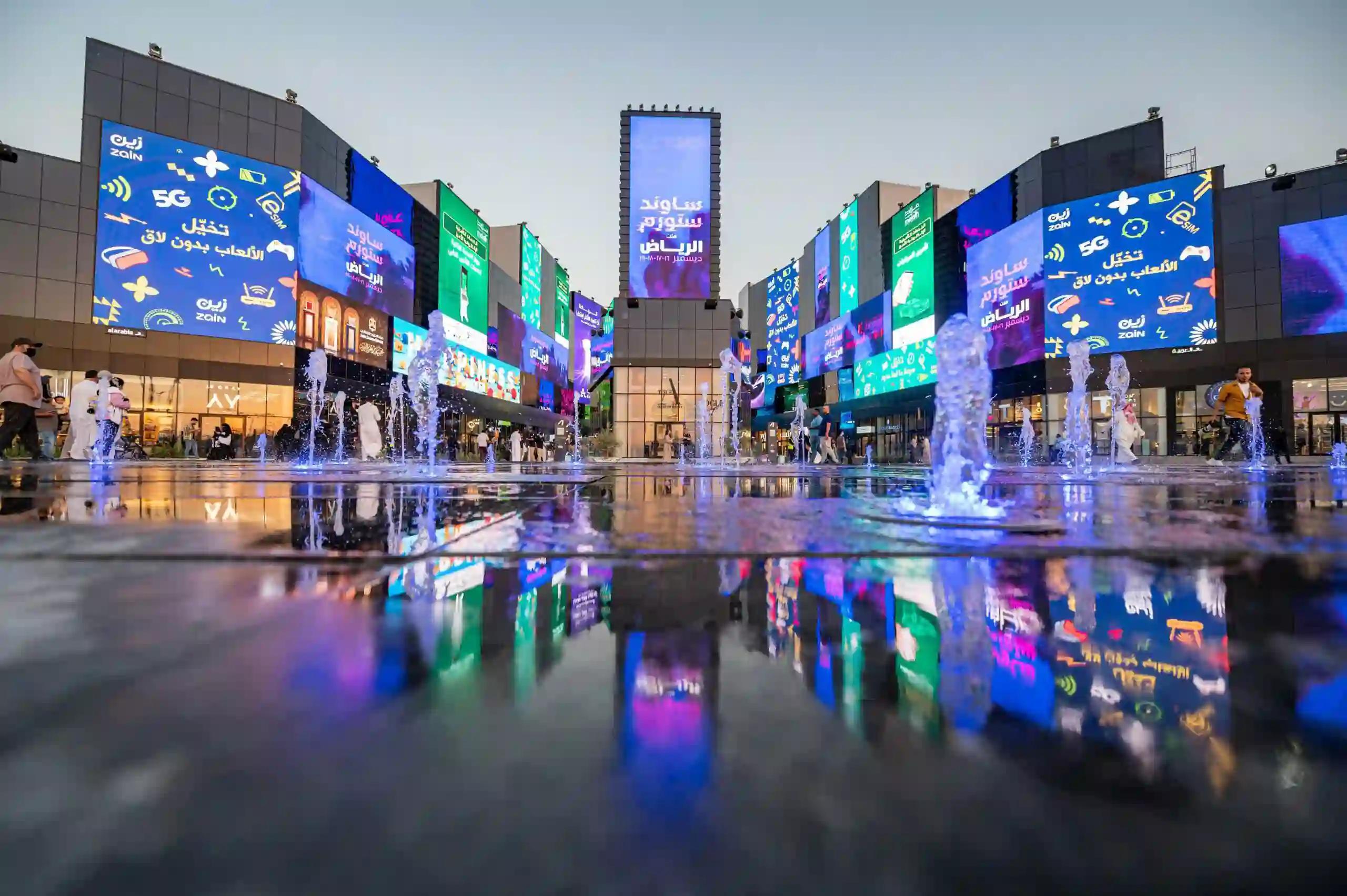Key Authorities in Saudi Arabia's Entertainment Sector: GEA, GAMR, SCEGA & More
Saudi Arabia's entertainment sector has experienced unprecedented growth since the launch of Vision 2030, a strategic framework aimed at diversifying the economy and enhancing quality of life.
The General Entertainment Authority (GEA), established in 2016, has been instrumental in this transformation, overseeing the development of a vibrant entertainment landscape. The sector's rapid expansion is evident, with over 4,000 companies now operating, a significant increase from fewer than 10 prior to Vision 2030.
This growth has not only enriched the cultural fabric of the Kingdom but also contributed substantially to the economy. In 2023 alone, inbound tourism linked to entertainment reached 6.2 million visitors, marking a 153% increase compared to 2022, and generating SAR 4 billion in tourist spending.
Understanding the key authorities, stakeholders, and regulatory framework is crucial for businesses seeking to operate successfully within this evolving landscape.
Key Authorities in the Entertainment Sector
1. General Entertainment Authority (GEA)
The General Entertainment Authority (GEA), established by Royal Decree in May 2016, is the principal authority responsible for regulating and developing the entertainment sector in Saudi Arabia.
Responsibilities:
- Issuing licenses for entertainment activities and events.
- Developing regulations and standards for the entertainment industry.
- Promoting investment and partnerships within the sector.
Significance:
GEA plays a pivotal role in transforming the entertainment landscape, aligning with Vision 2030 objectives to diversify the economy and enhance the quality of life.
2. General Authority of Media Regulation (GAMR)
The General Authority of Media Regulation (GAMR), formerly known as the General Commission for Audiovisual Media, is responsible for regulating media content and ensuring compliance with national standards.
Responsibilities:
- Monitoring and regulating audiovisual media content.
- Issuing licenses for media broadcasting activities.
- Setting controls on media content to align with cultural and societal values.
Significance:
GAMR ensures that media content within the entertainment sector adheres to the Kingdom's cultural norms and regulatory standards.
3. Saudi Conventions & Exhibitions General Authority (SCEGA)
Established in 2018, the Saudi Conventions & Exhibitions General Authority (SCEGA) aims to enhance the conventions and exhibitions sector, contributing to the national economy.
Responsibilities:
- Regulating and promoting conventions and exhibitions.
- Enhancing locational factors and regulations to attract international events.
- Collaborating with stakeholders to develop the sector.
Significance:
SCEGA plays a crucial role in positioning Saudi Arabia as a hub for conventions and exhibitions, complementing the entertainment sector's growth.
Key Stakeholders in Saudi Arabia’s Entertainment Sector
1. Development and Investment Entertainment Company (DIEC)
The Development and Investment Entertainment Company (DIEC) is a key player driving growth in the entertainment sector through strategic investments and partnerships.
Role:
- Investing in large-scale entertainment projects.
- Collaborating with international entertainment companies.
- Enhancing infrastructure to support entertainment activities.
Significance:
DIEC's initiatives contribute to the sector's expansion, offering diverse entertainment options and boosting economic development.
2. Public Investment Fund (PIF)
The Public Investment Fund (PIF), Saudi Arabia's sovereign wealth fund, invests in various sectors, including entertainment, to support economic diversification.
Role:
- Funding large-scale entertainment projects and infrastructure.
- Attracting international entertainment companies to the Kingdom.
- Facilitating public-private partnerships within the entertainment sector.
Significance:
PIF's investments are central to the Kingdom's strategy to diversify its economy and develop a vibrant entertainment industry.
Regulations in Saudi Arabia’s Entertainment Sector
Operating an entertainment business in Saudi Arabia requires adherence to several regulatory frameworks. Here are the most critical regulations that businesses must comply with:
1. Licensing and Supervision of Entertainment Activities (GEA)
The General Entertainment Authority (GEA) issues licenses for various entertainment activities and supervises compliance with regulations.
Key Provisions:
- Licensing Requirements: Entities must obtain appropriate licenses for organizing entertainment events or activities.
- Compliance Obligations: Licensees must adhere to GEA's regulations and standards during events.
- Inspection and Monitoring: GEA conducts inspections to ensure compliance with regulations.
Significance:
Securing the necessary licenses and adhering to GEA's regulations are essential for legally operating within the entertainment sector.
2. Content Regulations (General Authority of Media Regulation - GAMR)
The General Authority of Media Regulation (GAMR) oversees the production, distribution, and broadcasting of audiovisual content within Saudi Arabia's entertainment sector.
Key Provisions:
- Content Approval: All media content, including films, advertisements, and event broadcasts, must be pre-approved by GAMR.
- Censorship and Restrictions: Content must adhere to Saudi Arabia’s cultural values, with restrictions on explicit, political, or religiously sensitive content.
- Media Licensing: Companies involved in the production or distribution of audiovisual media must obtain a license from GAMR.
Significance:
Compliance with GAMR regulations is critical to avoid fines, content bans, or reputational damage. Businesses must ensure that media content aligns with Saudi Arabia’s ethical, social, and cultural values.
3. Health & Safety Regulations (GEA and Ministry of Health - MoH)
For large-scale events, safety and health regulations are paramount, with oversight from both the General Entertainment Authority (GEA) and the Ministry of Health (MoH).
Key Provisions:
- Emergency Response Plans: Event organizers must create and submit emergency response and crowd control plans.
- On-Site Medical Services: For large events, organizers must have on-site medical teams to respond to health emergencies.
- Health and Hygiene Protocols: Businesses must ensure hygiene and sanitation standards are upheld, especially for food and beverage services.
Significance:
Ensuring compliance with health and safety regulations reduces the risk of accidents, enhances guest experience, and protects event organizers from liability issues.
4. Event Licensing and Permits (Saudi Conventions & Exhibitions General Authority - SCEGA)
The Saudi Conventions & Exhibitions General Authority (SCEGA) is responsible for issuing event permits for exhibitions, conferences, and large-scale public gatherings.
Key Provisions:
- Event Permit Requirements: Organizers must submit event details, guest lists, and logistical plans for approval.
- Compliance with Safety Standards: Companies must ensure events are accessible, safe, and compliant with national standards.
- Monitoring and Audits: SCEGA may conduct on-site inspections during events to verify compliance with its regulations.
Significance:
Obtaining event permits is mandatory to organize large public gatherings or exhibitions. Failure to do so can result in event cancellation, fines, or legal action.
5. VAT and Zakat Compliance (ZATCA)
The Zakat, Tax, and Customs Authority (ZATCA) oversees the collection of VAT and zakat for businesses in the entertainment sector.
Key Provisions:
- VAT Registration: All businesses generating revenue from entertainment activities must register for VAT and charge the applicable rate.
- Customs on Imported Equipment: Event organizers importing equipment (e.g., staging, lighting, or audiovisual gear) must pay customs duties.
- Zakat Compliance: Saudi-owned companies must register for zakat and submit annual filings.
Significance:
Failure to comply with VAT and zakat regulations can lead to fines, shipment delays, and restrictions on imports. Businesses must ensure timely filing and payment of taxes.
6. Intellectual Property and Copyright Laws (SAIP)
The Saudi Authority for Intellectual Property (SAIP) governs the protection of intellectual property, copyrights, and creative works, especially relevant to the production of films, music, and audiovisual content.
Key Provisions:
- Copyright Protection: Creators, artists, and production houses have the right to register their creative works.
- Anti-Piracy Measures: SAIP enforces anti-piracy laws to protect copyrighted material from unauthorized use or distribution.
- Trademark Registration: Event organizers can register trademarks for unique event brands or event-specific intellectual property.
Significance:
By protecting intellectual property, companies can safeguard creative works, enhance brand protection, and reduce the risk of content theft or copyright infringement.
7. Labor Law and Saudization (Ministry of Human Resources and Social Development - MHRSD)
The Ministry of Human Resources and Social Development (MHRSD) enforces Saudization policies and labor laws, ensuring the employment of Saudi nationals in the entertainment sector.
Key Provisions:
- Saudization Quotas: Entertainment businesses must meet specific quotas for employing Saudi nationals, as required by the Nitaqat Program.
- Work Permits for Foreign Employees: Companies hiring foreign staff for short-term event support must ensure they have valid work permits.
- Labor Law Compliance: Compliance with working hour regulations, employment contracts, and employee rights is essential.
Significance:
Failure to comply with labor laws can lead to fines, suspension of work permits, and business disruptions. Hiring local talent under the Nitaqat Program enhances government relations and operational stability.
Looking to establish or grow your entertainment business in Saudi Arabia? AstroLabs can support your entry with licensing, business setup, and regulatory compliance.
Latest Articles

Set Up and Scale Your Business in Saudi Arabia
Join 600+ Companies Who Expanded to the Kingdom with AstroLabs


